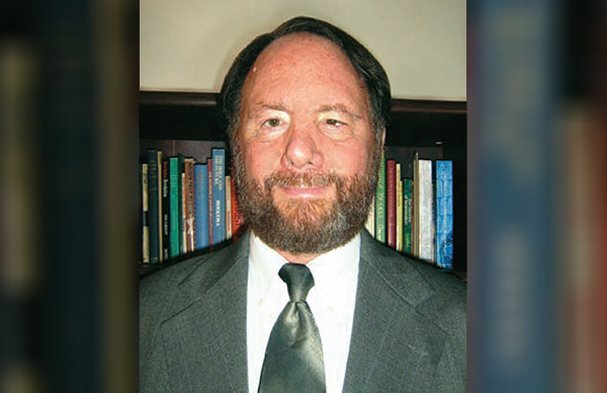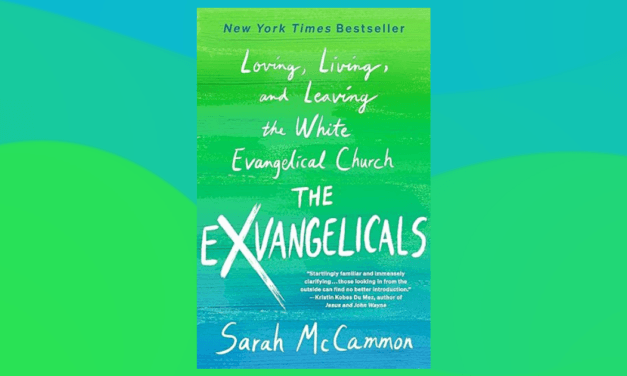
This article first appeared in the From the Editor column of the CHRISTIAN RESEARCH JOURNAL, volume 35, number 06 (2012). The full text of this article in PDF format can be obtained by clicking here. For further information or to subscribe to the CHRISTIAN RESEARCH JOURNAL go to: http://www.equip.org/christian-research-journal/
Now grace was given to each one of us according to the measure of the Messiah’s gift.…He personally gave some to be apostles, some prophets, some evangelists, some pastors and teachers, for the training of the saints in the work of ministry, to build up the body of Christ, until we all reach unity in the faith and in the knowledge of God’s Son, growing into a mature man with a stature measured by Christ’s fullness. Then we will no longer be little children, tossed by the waves and blown around by every wind of teaching, by human cunning with cleverness in the techniques of deceit. But speaking the truth in love, let us grow in every way into Him who is the head—Christ. (Eph. 4:7, 11–15 HCSB)
There may be no Bible passage that I quote more often than this selection from Ephesians 4, because to me it is nothing less than the blueprint for Christian ministry. I see myself and CRI in there, which should not seem strange, since all Christians should find themselves in the passage.
In the case of CRI, we are teachers given to the body of Christ just as so many others are, but with a distinctive focus according to the grace that was given. We are gifted as well as trained in the area of discernment and our specific calling is to promote discernment (as well as apologetics) in the body of Christ at large.
For Christ followers the need for discernment has always gone with the territory of living in a fallen world where the Devil prowls around like a roaring lion looking for anyone he can devour (1 Pet. 5:8). Paul prayed that the Philippians’ “love will keep on growing in knowledge and every kind of discernment, so that you can approve the things that are superior and can be pure and blameless in the day of Christ” (Phil. 1:9–10). He told the Corinthians that while they should be as inexperienced children when it comes to evil (e.g., “the techniques of deceit”), in their thinking they should not be as children but rather mature (1 Cor. 14:20; cf. Jesus’ admonition in Matt. 10:16). The writer to the Hebrews explained that the way to become mature in thinking is through gaining knowledge of Scripture and then applying it to every area of life. Through this “practice [the mature] have their senses trained to discern good and evil” (Heb. 5:13–14).
It may not be hyperbolic to say, however, that there has never been a time in the history of the Christian church where the need for discernment skills has been more critical than it is now. In the West we live in a post-Christian, postmodern, religiously pluralistic culture that is awash in unbiblical proposals for what to believe and how to live, coming from both religious (including so-called Christian) and nonreligious sources. In this Information Age, with its explosion of communication technologies, devices, and networks, we are bombarded with these proposals at a rate that could not have been fully imagined two decades ago, let alone two millennia ago when the New Testament was written.
At an earlier time in American history, a biblical paradigm prevailed that minimized the need for discernment skills. Today, developing such skills can be a matter of survival. Admittedly, some Christians will survive simply by withdrawing from the culture as much as possible. This is certainly better than not surviving at all, but it is unsatisfactory. If Christians cloister themselves from culture, how can they fulfill their mission to be its salt and light (Matt. 5:13–14)? How can they demonstrate the transcendent value of the gospel in the contemporary marketplace of ideas if they stay clear of the marketplace?
It is imperative therefore for Christians not only to survive in a pluralistic culture but to thrive, and this is done neither by assimilating the culture around them nor by isolating themselves from it, but rather by engaging it redemptively. And this, in turn, is only possible when they are so intimately familiar with the object and content of their faith that they immediately recognize counterfeits when they cross their paths.
This kind of redemptive engagement calls for a nuanced discernment. If we see things in simplistic black-or-white categories we will be unable to identify, and therefore affirm, that which is good, true, or beautiful in a religion, philosophy, ideology, self-help method, work of art, or any other expression of belief we encounter in the culture. And here is the most critical problem with that: oftentimes people will reject a gospel presentation because they know that something about what they believe is true and valid and yet the Christian does not acknowledge it; therefore, they conclude, the Christian does not know what he or she is talking about, and the warnings of an ignorant person can safely be ignored. (I know this not only from observation but from my personal pre-Christian experience.) To be able to affirm that which is true or valid about a book, movie, teaching, or movement disarms the person of that objection and thus makes it easier to proceed to a discussion about whatever is false or invalid about the subject in question.
A further benefit to a more nuanced approach to discernment is related to the maxim that “all truth is God’s truth.” Even though their ultimate solutions to the problem of living in a fallen world miss the mark, nonbelievers do at times make valid and valuable observations about nature, culture, and human experience that Christians may have failed to make, at least as powerfully (e.g., Thomas Paine’s Common Sense). In this way Christians can take fuller advantage of truth that God makes available to all people through common grace.
The present issue of the JOURNAL provides multiple discernment opportunities. For example, the inescapable truth about Dietrich Bonhoeffer is that he was never truly an orthodox theologian, and he went from bad to worse in the latter years of his tragically shortened life. But this does not mean we have nothing to learn from him. His courageous opposition to Adolf Hitler and the Nazification of the German church, ultimately resulting in his martyrdom, should continue to inspire us. In a similar way (using an example from a previous issue: vol. 33, no. 1), learning about defects in Martin Luther King’s theology and personal life should not keep us from appreciating his nonviolent stand against segregation and 1960s American racism. He paid for it with his life but it was not in vain: in the area of racism, our country has dramatically changed for the better.
The film Cloud Atlas also calls for nuanced discernment. It comes from a postmodern and Buddhistic perspective, but that does not mean it has no value to Christians. It affirms the existence of objective truth and rightly affirms (albeit for the wrong reasons) the selfishness of human nature that lies at the root of oppressive human institutions. The film thus potentially offers insights to Christian viewers and provides an excellent starting point for evangelistic/apologetic discussions with nonbelievers.
What we are talking about here is critical thinking, but not with the emphasis on finding fault. It is a more charitable approach that will identify and “approve the things that are superior” in a belief system without glossing over the elements that should be rejected. It will be Jesus’ responsibility to separate the wheat and the chaff on the Last Day when it comes to professing Christians, but it is our responsibility daily to learn how to separate the wheat and the chaff when it comes to beliefs and practices, to weigh them, and to hold them in proper proportion one to another. —Elliot Miller








